Fostering Purpose
Initial seven Foster Purpose Grants seed projects advancing leadership, insight, progress
Early last year, the Dean’s Office at the UW Foster School of Business established a new program to support novel ideas and launch promising initiatives that advance the Foster purpose:
Together…
We Foster Leaders
We Foster Insights
We Foster Progress
…To Better Humanity
The first batch of Foster Purpose Grants were awarded to seven proposals by faculty and staff. Each received $3,000 last January, seed funding to fuel the following initiatives.
1. Diversifying case studies
Emily Cox Pahnke, an associate professor of management and organization and Lawrence P. Hughes Endowed Professor of Innovation and Entrepreneurship, has created a suite of new case studies involving business owned by women and people of color to diversify the examples that illustrate concepts in her classes.
One is an examination of Atoms Shoes, co-founded by Sidra Qasim, a woman who immigrated to the United States from Pakistan and pivoted multiple times before arriving at the successful model of what she calls “the world’s most comfortable sneaker.”
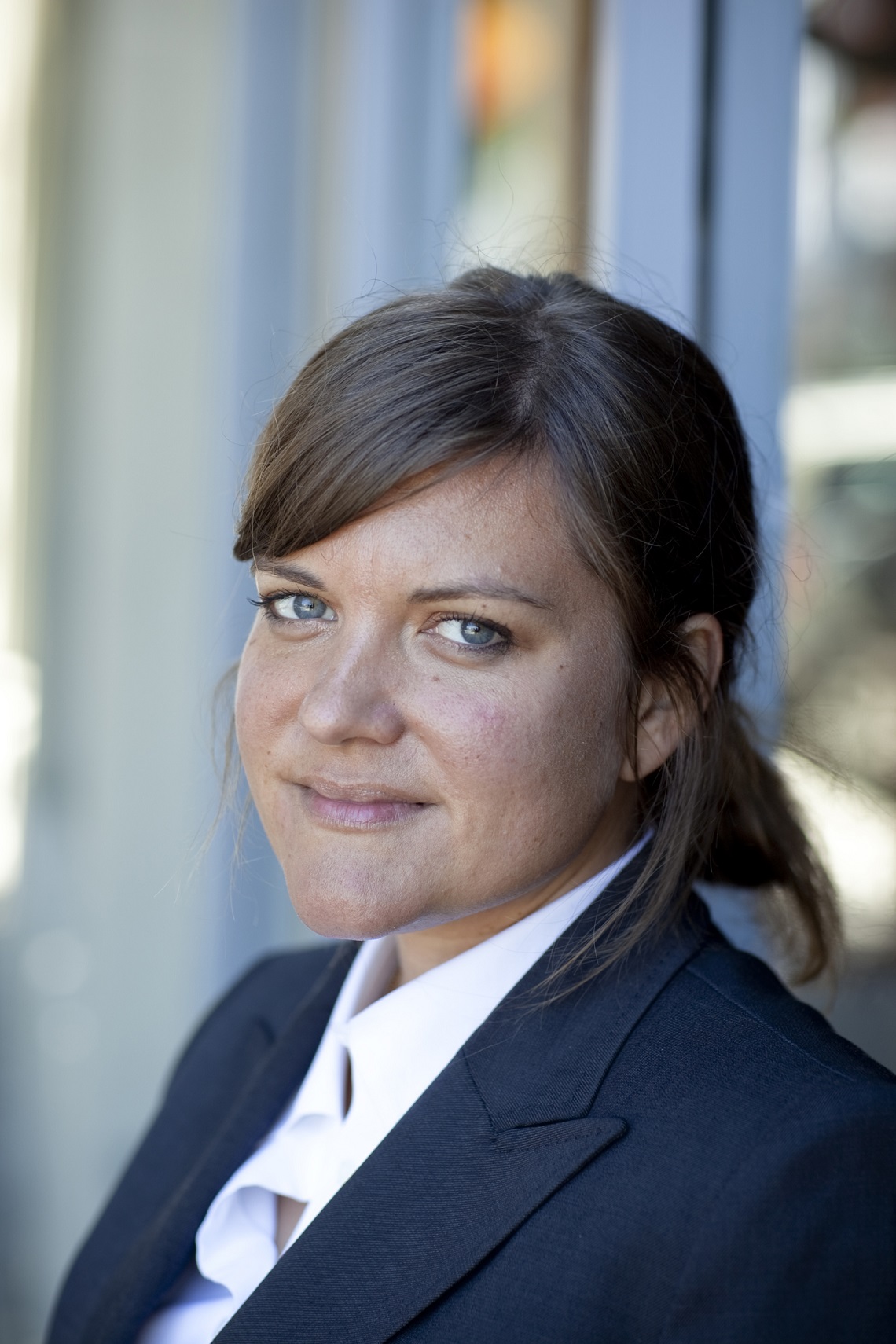
Another explores Girlfriend Collective, co-founded by Quang Dinh (a former student at the Foster School) and his wife Ellie. This innovative company is at the forefront of sustainable fashion, using post-consumer plastic to make its clothing, devising manufacturing and supply chain that is shaking up the industry, and giving away an entry-point product—leggings—to build the brand before selling a single item.
“I use the launch of Girlfriend Collective to get students to think about their hypothesis testing and low-cost experimentation,” Pahnke says. “I use Atom Shoes to help students think about their own backgrounds and how they might overcome various setbacks when they occur.”
2. Students on leaders on DEI
The Foster Advancement team is producing a series of student-written blog posts, videos or podcasts focused on diversity, equity and inclusion (DEI) and the work of leaders in the corporate community.
This project—a partnership between Corporate Relations and Marketing & Communications—is intended to develop student skill at strategic storytelling while shining a light on the innovative ways that organizations are furthering DEI initiatives. These leaders are “uniquely prepared to lead diverse teams and consider broad concepts like sustainability, environmental impact and social justice,” says project lead Eileen Bhatia, Foster’s assistant director of corporate relations.
Participating students will interview executives to convey their insights on leadership development, confronting challenges, and promoting DEI within their organizations. Foster Marcom will produce the posts and promote via the school’s social media channels, with the program beginning in spring 2022.
“This series will have a positive impact on our local, national and global communities,” adds Bhatia, “especially students who are aiming to understand, internalize and become business leaders who apply a DEI lens to everything they do in an effort to better humanity.”
3. More effective vaccine messaging
Nidhi Agrawal, the Michael G. Foster Endowed Professor of Marketing, expanded data collection for an important study on messaging to encourage COVID-19 vaccine acceptance.
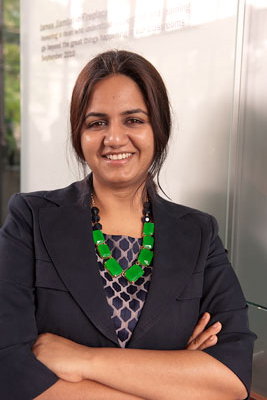
In particular, she and research partners Dr. Susan Joslyn, professor of psychology, and Dr. Sonia Savelli, senior research scientist at the Center for Human Centered Design and Engineering, were able to recruit 6,646 people to participate in their study—of which 3,787 were unvaccinated.
Their analyses determined that providing a simple explanation of vaccine mechanism and safety that clearly debunks popular misconceptions is an effective way to convince skeptics to consider getting inoculated against the virus.
The research team has submitted the paper to the Journal of Experimental Psychology: Applied, and presented findings to UW Medicine and elsewhere. They are planning to conduct follow-up studies on vaccine booster acceptance and other related topics.
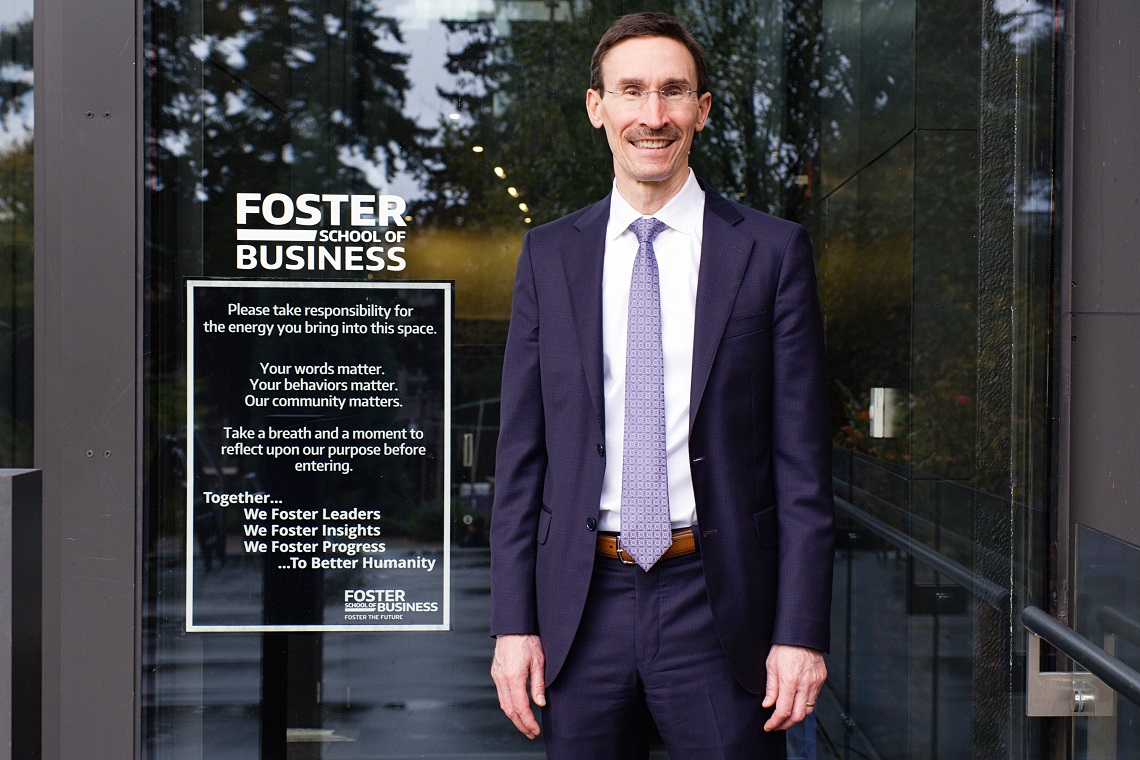
4. Expanding peer coaching
The Center for Leadership and Strategic Thinking (CLST) has developed a pilot Peer Group Coaching program for Foster faculty and staff.
Design and implementation are being led by Kaeleen Drummey, a coach and research scientist who leads coaching initiatives at CLST. She is adapting programs the center already delivers to Foster MBA students and external organizations.
Drummey says that peer group coaching is an emerging model in the field of coaching and is unique in its potential to foster peer connections. It both supports the development of each group member, and also serves as a place to develop and practice peer coaching skills that are transferrable to the workplace and other relationships.
The six-month pilot program is designed to support development of coaching conversation skills among faculty and staff, while fostering a sense of community and increasing inclusive conversations, perspective-taking, and personal development. CLST is also building an evaluation plan to measure effectiveness and impact of the pilot program.
“Coaching conversation skills are foundational to transformational leadership and are core components of leadership development programs at the CLST,” Drummey says. “Through this pilot initiative, CLST will provide this tool and resource to the Foster community, and provide a mechanism to bring the Foster purpose statement to life.”
5. Personal finance supplement
Jennifer Graves, an assistant teaching professor of operations and finance, is developing a practical new personal finance course specifically for first-generation college students and students from adverse backgrounds.
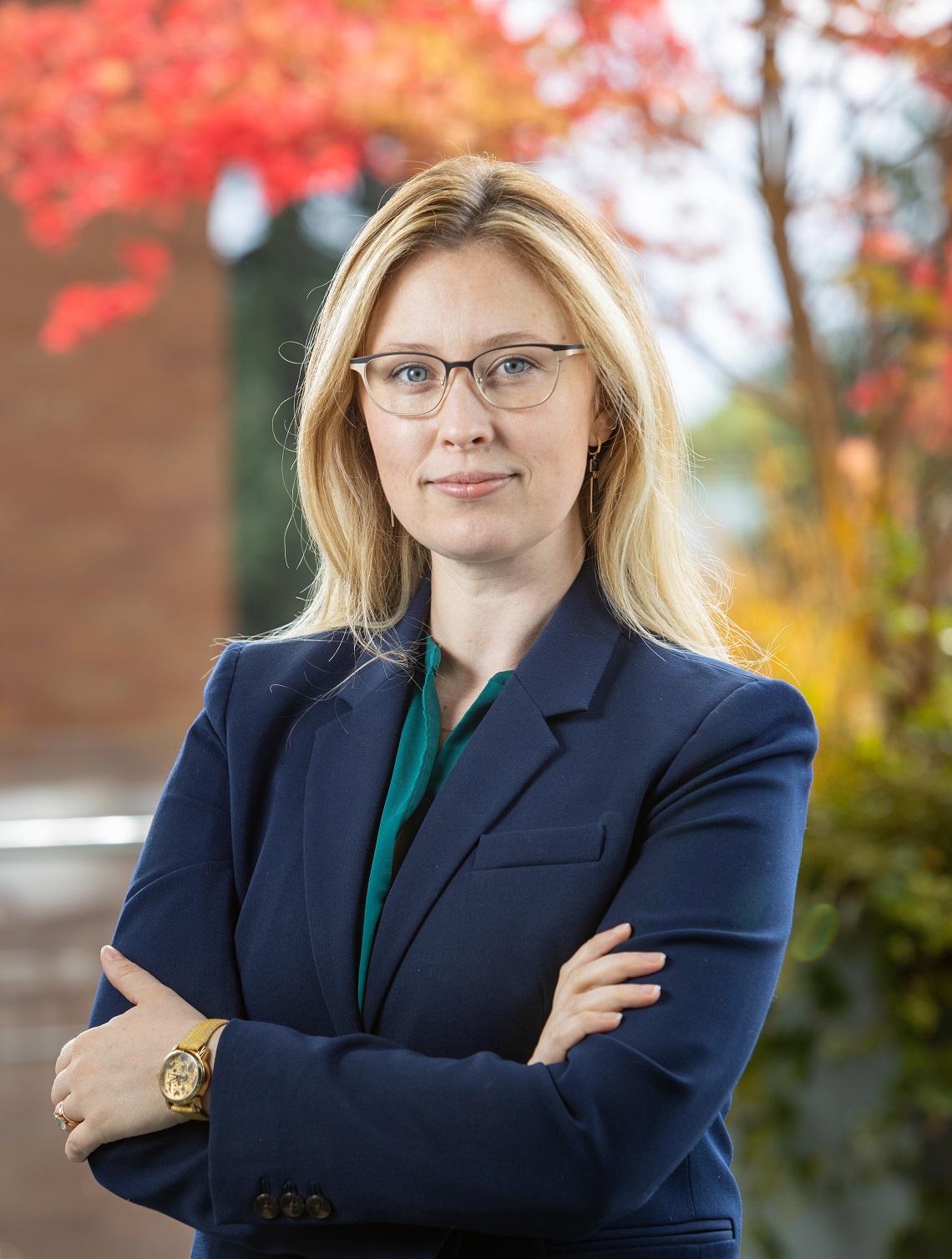
The two-credit course will supplement FIN 205, the extremely popular undergraduate personal finance course, adding content tailored to support these students, who can sometimes feel intimidated to fully participate in introductory finance courses. The intent is to provide additional instruction and practical applications of personal finance topics, to create a welcoming space for asking personal questions free of judgement by other students, and to foster a community of students who can help each other continue their personal finance development.
“This is an opportunity to ensure that historically underserved students have an inclusive community and welcoming space to gain financial literacy,” says Graves, “a skill which will impact their lives well beyond their time at the University of Washington.”
This new course, set to debut fall 2022, was developed in partnership with the UW Office of Minority Affairs & Diversity.
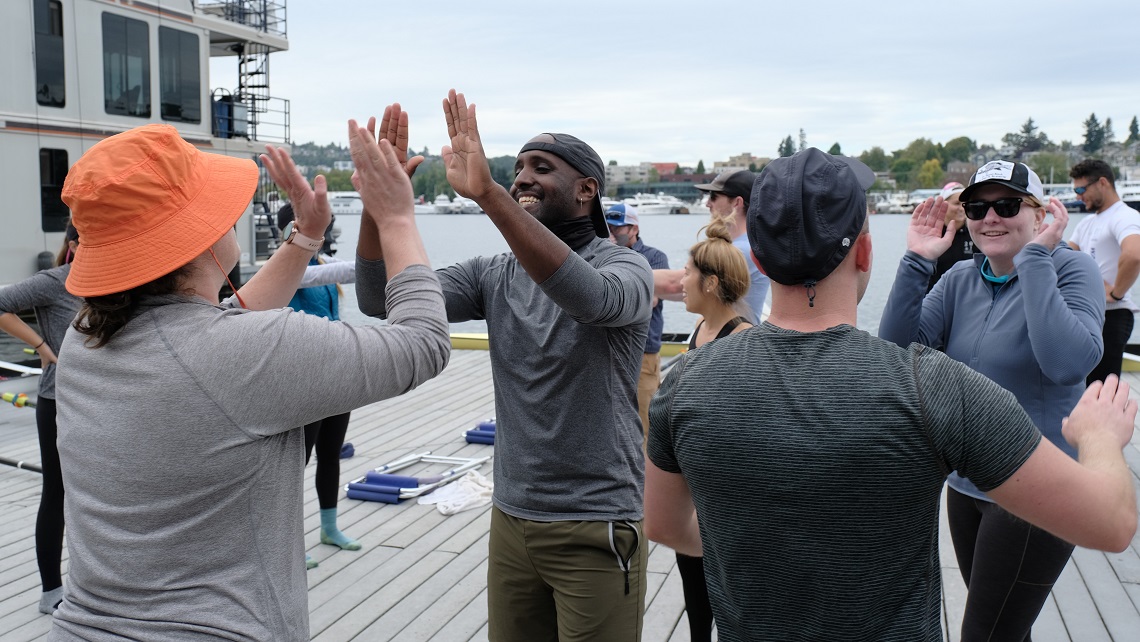
6. Journey to the center of Civil Rights
The Global Business Center and Ed deHaan, the Gerhard G. Mueller Endowed Professor in Accounting, have created a unique new course: Race, Culture and Business: MBA Immersion to the American South.
The course examines the historical events that have shaped and disrupted systems of racism and oppression in the United States and exposes the ways that these systems are manifested in the current business landscape. It equips students to become effective allies in a more equitable future.
A series of preparatory sessions over the course of this academic year is creating context and building community prior to an in-depth and immersive experience in the American South over spring break. The class of MBA students will travel to key locations from the era of enslavement and the Civil Rights movement, including New Orleans, LA, Jackson, MS, Birmingham, AL, and Montgomery, AL. There, they will explore the intersection of race, culture and business and meet with small business owners, activists and the leaders of diversity, equity and inclusion (DEI) at large corporations. The program—and the trip—will conclude with a crossing of the famed Edmund Pettus Bridge in Selma.
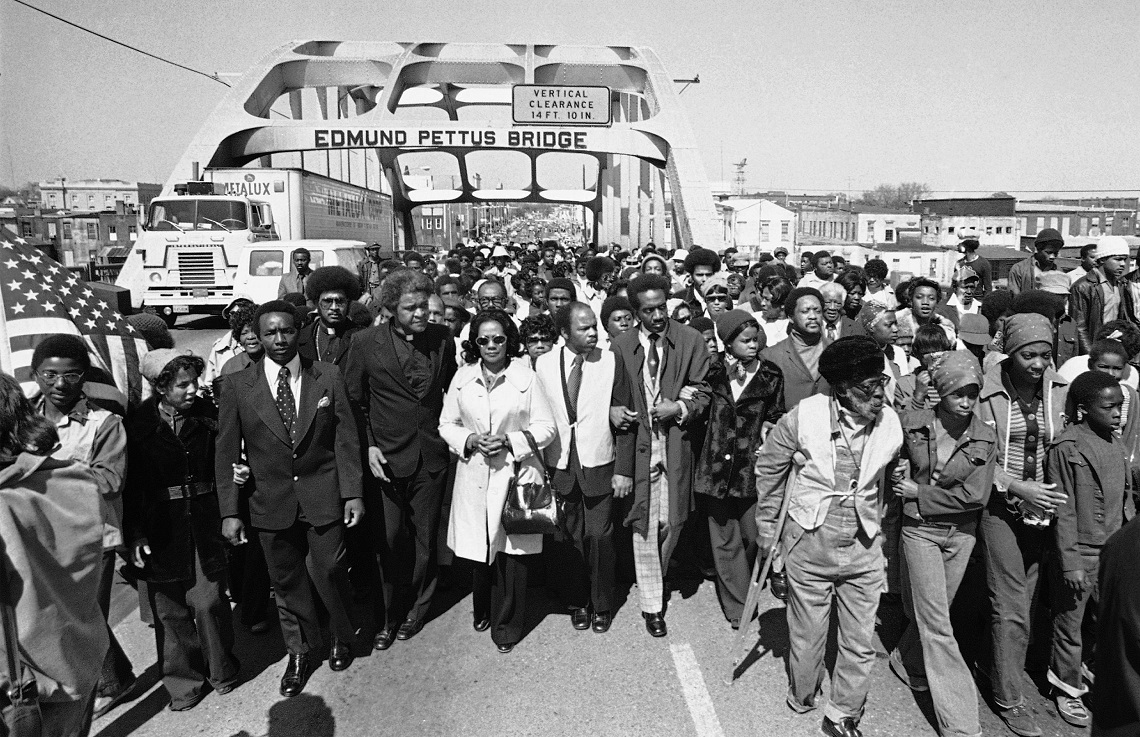
The program has been supported by Norah Fisher of the MBA Program office and Angela Shelley of the Global Business Center, and facilitated by Sankofa Impact.
7. Challenge for positive social change
The Buerk Center for Entrepreneurship is exploring the development of a new Positive Social Change Challenge, designed to engage student energy and innovation in creating solutions to systemic challenges impacting marginalized communities—such as racial inequity, homelessness and environmental injustice.

A Foster Purpose Grant supported a research fellowship to benchmark approaches (if any) at peer institutions and gather insights from partners and leaders across the UW campus and community at large.
This groundwork was a joint effort between the Buerk Center and the UW Brotherhood Initiative, the program led by Professor Joseph Lott that supports the academic growth and leadership development of men of color at the UW.
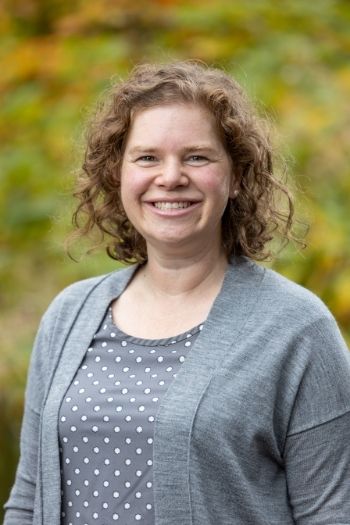
Sparked by a conversation between venture capitalist and Foster lecturer John Zagula and Dr. Lott, initiated by Sarah Studer and facilitated by Lauren Brohawn (both of the Buerk Center), the Brotherhood Initiative is piloting a curriculum throughout this academic year. In fall, the participating BI students identified their topics for change through case studies, guest speakers and personal experiences. In winter quarter, they are focusing on the entrepreneurial and leadership skills necessary to affect change and formulating their action plans. Spring quarter will culminate in the Positive Social Change Challenge, in which teams will showcase innovative ways of making social impact and receive feedback from the community.
The Buerk Center hopes to expand this pilot program to a campus-wide challenge. And it plans to leverage off this work to infuse in all its programs and competitions a sense of urgency to address systemic challenges faced by underserved communities.
“We’re trying to build this kind of proactive thinking into our students so that social and environmental responsibility becomes an essential piece of every business plan,” says Buerk Center Director Amy Sallin. “The more that we can instill these ideas into our students early on, they better they are going to be as entrepreneurs, project leaders, CEOs, or whatever they go on to do.”
